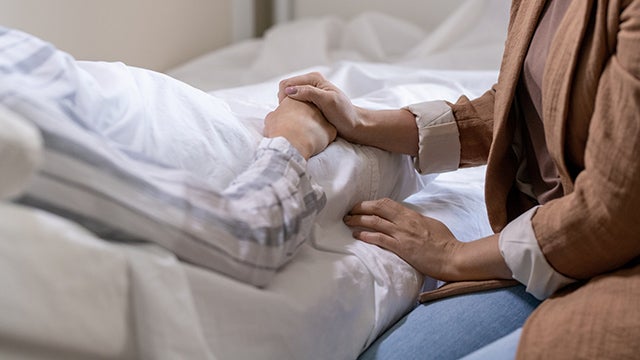Gillian Caldwell is CEO of Global Witness, an organization that campaigns to end environmental and human rights abuses driven by the exploitation of natural resources and corruption in the global political and economic system. She will speak as part of the Freedom of Speech and the Marketplace of Ideas track at the Aspen Ideas Festival.
In October last year, one of Malta’s highest-profile journalists, Daphne Caruana Galizia, was killed by a car bomb. Her work, which exposed corruption, criminality, conflicts of interest, and ethical failures in decision-making by politicians and their associates was, perhaps, reaching its zenith in the leak of the Panama papers — which starkly exposed the web of money-laundering, proceeds of crime, and exploitation that linked politics, business, and criminal gangs.
Caruana Galizia is not the only journalist killed last year while pursuing the rot at the root of things. The International Federation of Journalists estimated that 81 people died over the course of 2017. 2018 looks to be no less deadly – already 28 journalists have been killed according to the Committee to Protect Journalists, including those who died in the horrific attacks in Kabul earlier this year.
This number looks set to rise as we get clarification on the human impact of the brutal state repression and violence against journalists and human rights activists going on in Nicaragua right now. Already Amnesty International estimate that 70 people have been detained in violation of fundamental rules of international law – and more than 2,100 people have been injured during, or in the aftermath of, protests. Earlier this month 10 people were killed in a single weekend, eight of them reportedly targeted by pro-government armed groups and members of the National Police, including an eight-month-old baby and two-year-old girl.
Today, as people from around the world gather for the Aspen Ideas Festival, I want to ensure that we take a moment to stand in solidarity with those in Nicaragua – and across the world – who face threats, violence, imprisonment, or death simply for doing their jobs or standing up for their beliefs in countries with repressive freedom of speech laws.
At the time she was assassinated, Caruana Galizia was making connections and following up leads that, no doubt, would have caused embarrassment for those who felt protected by layers of shady lawyers and tax advisors. Her work may even have sparked change in a global system weighted towards those with money and power.
Because she is believed to have been specifically targeted, and because her work brought her into direct conflict with those in power, she become symbolic in a wider campaign to stop the use of violence, intimidation and murder as a tool to suppress the truth.
The Daphne Project, launched earlier this year, seeks to continue her work. Forty-five journalists have come together to delve through the evidence Daphne was analyzing, to pursue the threads she had picked up, and to dig into those they believe have an interest in covering up the true perpetrators of her murder.
A few months ago, they began publishing their findings. They are exposing truths as Daphne had, revealing how the President of Azerbaijanand his family, widely criticized already for a lack of transparency, are presiding over a huge Dubai property empire, and scrutiny on two leading Maltese politicians around payments to their own offshore companies.
These are issues on which the Daphne Project has a firm ally in Global Witness. Over decades we have carried out forensic undercover investigations into how the corrupt and criminal steal, stash, and spend their money.
This has taken us from dodgy deals to buy oil fields or mines in Africa to the use of anonymous companies, often incorporated in UK overseas territories, to channel profits from drugs, bribery or people trafficking into the high end property market in cities like London and New York. We campaign for transparency, accountability, and change.
In many ways, the killings of journalists are the sharpest end of a dangerous and growing trend around the world: the closure of civic space which is making arguments like those championed by Global Witness and Daphne Caruana Galizia harder and even more dangerous to pursue.
The global civil society alliance Civicus Monitor estimates that just 3 percent of people on the planet live in countries with open civic space, whilst 8 percent live in countries with closed civic space, 36 percent in repressed civic space, 37 percent in obstructed civic space, and 16 percent in narrowed civic space.
We see this trend most starkly in our work tracking the murders of those campaigning to protect their land, forests, and other natural resources from seizure by companies or governments against community interests – often against the law. These environmental defenders face daily violent threats, intimidation, arrest, and harassment. In 2017, 197 of them were killed, simply for standing up for their rights and for wanting to stay in their homes and on their land.
Brazil – with 46 killings – was the deadliest country for defenders in 2017. It also remains one of Latin America’s most violent countries for journalists. In Colombia, where 32 defenders died, the most prominent victim was the radio and video journalist Efigenia Vasquez from the Kokonuko community, who was shot during a protest to “liberate Mother Earth.” And Mexico, where defender deaths rose five-fold between 2016 and 2017, is the most dangerous country for journalists after Syria and Iraq.
There is an inextricable link between repressing the freedom of the press and repressing the freedom for civil society to campaign for their rights. Both are an attempt to repress “inconvenient truths,” silencing protesting voices, and dimming the spotlight on illegal activity perpetrated by individuals, companies, and governments in power. And both deserve the world’s attention.
As we remember those who fight so hard for the press to be a vehicle for transparency and accountability, let’s not forget those who put their lives on the line campaigning for a more ethical, sustainable, and equal world for their families and future generations.
The views and opinions of the author are her own and do not necessarily reflect those of the Aspen Institute.


